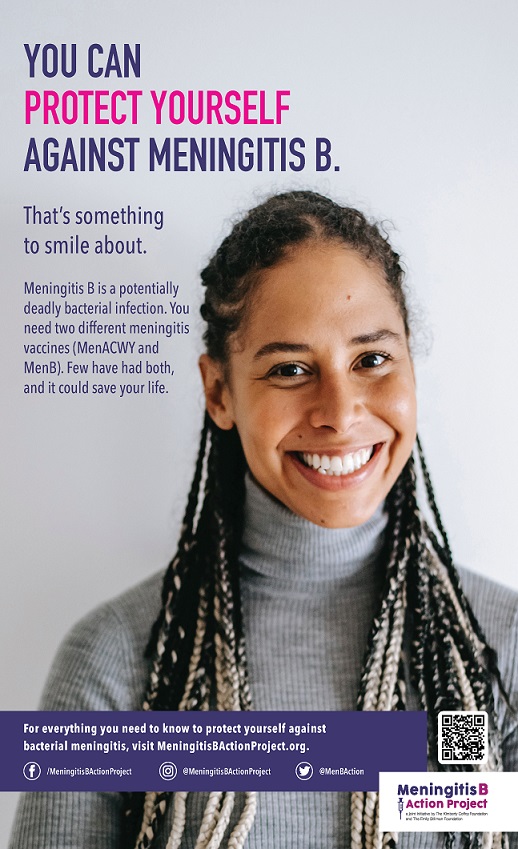Transitioning to college is a pivotal milestone for young adult students, and access to mental health support is crucial.
This is the second in a three-part series sponsored by Alkermes, Inc. exploring mental health support for adult college students and their communities.
Watch for part 3 of this series coming later this semester and refer back to part 1 for the complete series!
College is a season of new beginnings, with new environments, freedoms and possibilities. On top of expected college stressors, the pandemic has created a new environment with unexpected and unprecedented obstacles that may pose new challenges for students.1,2,3
In addition to this already stressful season, the college years may coincide with the onset of a mental health condition. In fact, according to a 2021 global report from the World Health Organization, 75% of lifetime mental health disorders begin prior to the age of 24, which is the time that many young adults are making the transition to college.4
Anxiety and depression are the most common mental health conditions experienced by college students receiving mental health services, according to the 2020 Annual Report of the Center for Collegiate Mental Health.5 In a separate online questionnaire of 2,031 U.S. students conducted in 2020, approximately 80% of 1,994 completed responses showed some level of depression, and 72% of 2,014 completed responses showed some level of anxiety. Common challenges identified by students as contributing to their mental health issues included the fear of the pandemic outbreak and risk of infection, changes in sleep patterns, trouble concentrating and pandemic-related barriers to maintaining social connections.1
The same stressful circumstances that result in anxiety can also place students at risk for serious mental illnesses, such as schizophrenia and bipolar disorder.1,6,7 And, unfortunately, only a small number of students with mental health conditions obtain treatment, which can make the journey to health and wellness even more challenging.4,6
Here are some simple mental health strategies to consider during the transition to college:
• Start talking. Maintain relationships and open lines of communication with loved ones. Connection is essential to health and well-being.8,9
• Create positive habits. From staying organized to prioritizing sleep, eating healthy food to staying physically active, positive habits support mental health. Remember: small changes may make a big difference.8
• Normalize the experience. Remind yourself that challenges are common, and transitions such as starting or returning to college are often difficult. Bumps in the road are easier to deal with when you accept them as normal parts of the process.6,9
• Access resources on campus. Consider beginning by accessing resources on campus: mental health resources available on campus may be able to help with everyday concerns and could be a good place to start if a student has concerns about developing a mental health problem9
• Speak to a doctor. Primary care physicians or on-campus clinics can be a great place to start. If they can’t provide the support themselves, they can suggest helpful resources.8,9
The college transition is challenging in any year, and the pandemic has added to the stress. It’s important for students to remember that experiencing mental health challenges or being diagnosed with a mental health condition is common during this time of life.6
If you are experiencing mental health challenges personally or are concerned about a friend or loved one due to differences in behavior, consider seeking the guidance of a trusted healthcare professional. The following resources are also good starting points for more information: The Schizophrenia & Psychosis Action Alliance, National Alliance on Mental Illness (NAMI) or Mental Health America (MHA).
Up next in this 3-part series, we will look at common behaviors and symptoms of mental health conditions that commonly arise during the college years. Part 3 will highlight the importance of early intervention and discuss sources of support post-diagnosis.
This is intended as informational only and not a substitute for professional medical advice, diagnosis or treatment. Always seek the advice of your physician or other qualified health provider with any questions you may have regarding a medical condition. Alkermes does not endorse and is not affiliated with the organizations listed above.
References
1 Wang X, Hegde S, Son C, Keller B, Smith A, Sasangohar F. Investigating mental health of US college students during the COVID-19 Pandemic: Cross-sectional survey study. Journal of Medical Internet Research. 2020;22(9). doi:10.2196/22817
2 Anderson G. Mental health support systems for coping with pandemic. https://www.insidehighered.com/news/2020/03/31/mental-health-support-systems-coping-pandemic. Published March 31, 2020. Accessed January 3, 2022.
3 Active Minds. COVID-19 IMPACT ON COLLEGE STUDENT MENTAL HEALTH.; 2020. https://www.activeminds.org/wp-content/uploads/2020/04/Student-Survey-Infographic.pdf. Accessed January 3, 2022.
4 WMH-ICS Initiative. The WHO World Mental Health International College Student (WMH-ICS) Initiative. The World Mental Health. https://www.hcp.med.harvard.edu/wmh/college_student_survey.php. Published 2021. Accessed January 3, 2022.
5 Penn State University. Center for Collegiate Mental Health 2020 Annual Report. Center for Collegiate Mental Health (CCMH). https://ccmh.psu.edu/assets/docs/2020%20CCMH%20Annual%20Report.pdf. Published 2020. Accessed January 3, 2022.
6 Pedrelli P, Nyer M, Yeung A, Zulauf C, Wilens T. College Students: Mental Health Problems and Treatment Considerations. Acad Psychiatry. 2015;39(5):503–511. doi:10.1007/s40596-014-0205-9
7 Blanco C, Okuda M, Wright C, Hasin DS, Grant BF, Liu SM, Olfson M. Mental health of college students and their non-college-attending peers: results from the National Epidemiologic Study on Alcohol and Related Conditions. Arch Gen Psychiatry. 2008 Dec;65(12):1429-37. doi: 10.1001/archpsyc.65.12.1429
8 National Alliance on Mental Illness. https://www.nami.org/About-Mental-Illness/Mental-Health-Conditions/Depression/Support. Published August 2017. Accessed January 3, 2022.
9 Managing a Mental Health Condition in College. National Alliance on Mental Illness. https://www.nami.org/Your-Journey/Teens-Young-Adults/Managing-a-Mental-Health-Condition-in-College. Accessed January 3, 2022.
ALKERMES® is a registered trademark of Alkermes, Inc. ©2022 Alkermes, Inc. All rights reserved.
UNB-003321
Media Contact
Dede McKelvy
Finn Partners
(860) 806-4358
Dede.McKelvy@finnpartners.com






